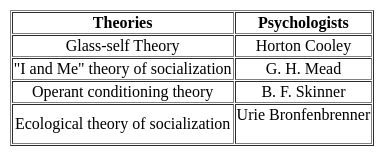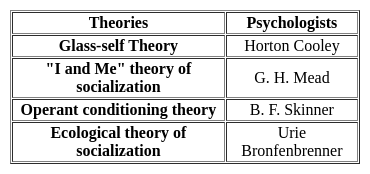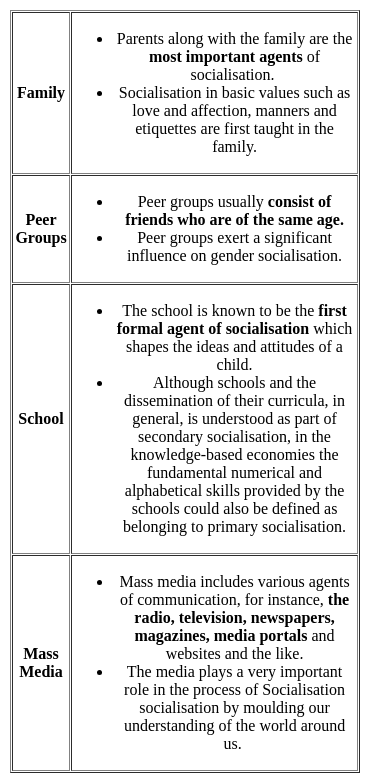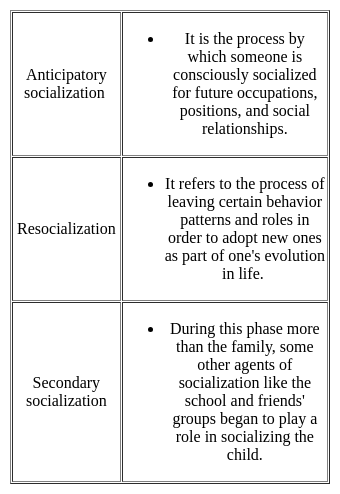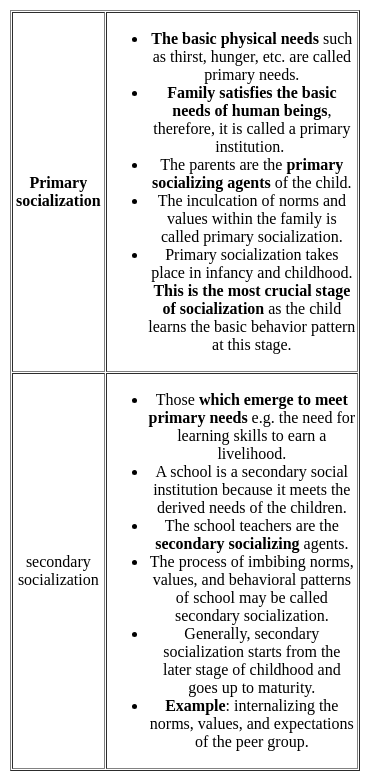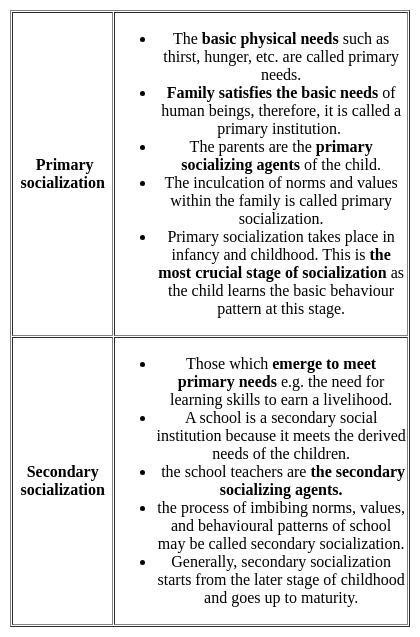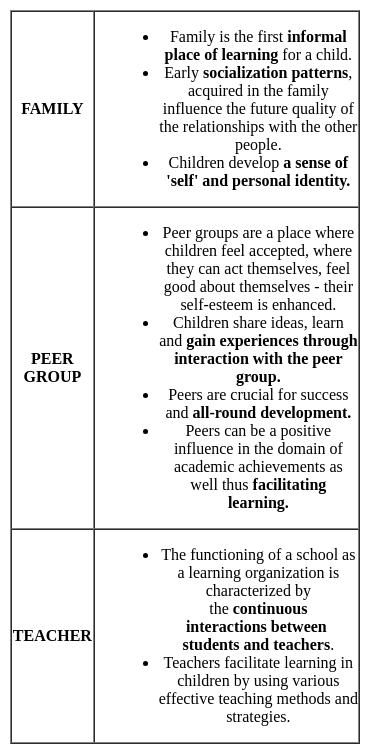Software Development Exam > Software Development Tests > Test: Education & Leadership (Socialization Process) - Software Development MCQ
Test: Education & Leadership (Socialization Process) - Software Development MCQ
Test Description
20 Questions MCQ Test - Test: Education & Leadership (Socialization Process)
Test: Education & Leadership (Socialization Process) for Software Development 2025 is part of Software Development preparation. The Test: Education & Leadership (Socialization Process) questions and answers have been prepared
according to the Software Development exam syllabus.The Test: Education & Leadership (Socialization Process) MCQs are made for Software Development 2025 Exam.
Find important definitions, questions, notes, meanings, examples, exercises, MCQs and online tests for Test: Education & Leadership (Socialization Process) below.
Solutions of Test: Education & Leadership (Socialization Process) questions in English are available as part of our course for Software Development & Test: Education & Leadership (Socialization Process) solutions in
Hindi for Software Development course.
Download more important topics, notes, lectures and mock test series for Software Development Exam by signing up for free. Attempt Test: Education & Leadership (Socialization Process) | 20 questions in 20 minutes | Mock test for Software Development preparation | Free important questions MCQ to study for Software Development Exam | Download free PDF with solutions
Test: Education & Leadership (Socialization Process) - Question 1
Process of primary socialisation begins from ________.
Detailed Solution for Test: Education & Leadership (Socialization Process) - Question 1
Test: Education & Leadership (Socialization Process) - Question 2
Which of the following is primary agent of socialisation for children?
Detailed Solution for Test: Education & Leadership (Socialization Process) - Question 2
Test: Education & Leadership (Socialization Process) - Question 3
________ and ________ are secondary agencies of socialisation
Detailed Solution for Test: Education & Leadership (Socialization Process) - Question 3
Test: Education & Leadership (Socialization Process) - Question 4
Which of the following is NOT an agency of socialisation?
Detailed Solution for Test: Education & Leadership (Socialization Process) - Question 4
Test: Education & Leadership (Socialization Process) - Question 5
_______ refers to the learning that children undergo when they enter social institutions such as school.
Detailed Solution for Test: Education & Leadership (Socialization Process) - Question 5
Test: Education & Leadership (Socialization Process) - Question 6
What is the method of socialisation in play-way level school?
Detailed Solution for Test: Education & Leadership (Socialization Process) - Question 6
Test: Education & Leadership (Socialization Process) - Question 7
Which one of these does not play a role in socialization of children?
Detailed Solution for Test: Education & Leadership (Socialization Process) - Question 7
Test: Education & Leadership (Socialization Process) - Question 8
What is the nature of socialisation ?
Detailed Solution for Test: Education & Leadership (Socialization Process) - Question 8
Test: Education & Leadership (Socialization Process) - Question 9
In which of the following type of socialization, focus is more on developing social skills pertaining to the culture and one's stage of development?
Detailed Solution for Test: Education & Leadership (Socialization Process) - Question 9
Test: Education & Leadership (Socialization Process) - Question 10
Which of the following is true of school and socialization?
Detailed Solution for Test: Education & Leadership (Socialization Process) - Question 10
Test: Education & Leadership (Socialization Process) - Question 11
The role of the family as an agent of socialization is:
a. internalizing of basic values of culture.
b. internalization of the basic cultural vocabulary of the child.
c. learning of roles in the family.
d. internalizing the norms, values, and expectations of the peer group.
Detailed Solution for Test: Education & Leadership (Socialization Process) - Question 11
Test: Education & Leadership (Socialization Process) - Question 12
Which of the following is a passive agency of socialization?
Detailed Solution for Test: Education & Leadership (Socialization Process) - Question 12
Test: Education & Leadership (Socialization Process) - Question 13
Which type of socialization takes place when the child receives training in institutional or formal settings such as school?
Detailed Solution for Test: Education & Leadership (Socialization Process) - Question 13
Test: Education & Leadership (Socialization Process) - Question 14
Family plays _____ role in socialization of the child.
Detailed Solution for Test: Education & Leadership (Socialization Process) - Question 14
Test: Education & Leadership (Socialization Process) - Question 15
The rapid pace of social development of the child is-
Detailed Solution for Test: Education & Leadership (Socialization Process) - Question 15
Test: Education & Leadership (Socialization Process) - Question 16
The process by which a person learns to behave interdependently for human welfare. That process is-
Detailed Solution for Test: Education & Leadership (Socialization Process) - Question 16
Test: Education & Leadership (Socialization Process) - Question 17
The best known study of the development of social participation is that of-
Detailed Solution for Test: Education & Leadership (Socialization Process) - Question 17
Test: Education & Leadership (Socialization Process) - Question 18
Socialization of a child starts from
Detailed Solution for Test: Education & Leadership (Socialization Process) - Question 18
Test: Education & Leadership (Socialization Process) - Question 19
Which of the following contributes most in the learning and development of children?
Detailed Solution for Test: Education & Leadership (Socialization Process) - Question 19
Test: Education & Leadership (Socialization Process) - Question 20
Which of the following is considered as society's main resource for social experimentation?
Detailed Solution for Test: Education & Leadership (Socialization Process) - Question 20
Information about Test: Education & Leadership (Socialization Process) Page
In this test you can find the Exam questions for Test: Education & Leadership (Socialization Process) solved & explained in the simplest way possible.
Besides giving Questions and answers for Test: Education & Leadership (Socialization Process), EduRev gives you an ample number of Online tests for practice
Download as PDF


